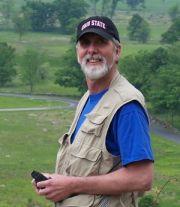Course Descriptions:
Academics
Department of Political Science
Welcome to Political Science! Not only will our course give you a fuller appreciation of American government, it will also help you build skills to interpret political events on your own. You will soon begin to develop a feel for the sophisticated complexities of American politics, as well as an understanding that politics does not consist of a series of random events. In other words, you will come to view politics theoretically, seeing the historical, economic, and cultural forces which condition decision-making in American government.
You will come to recognize that politics does not occur just in other places but also takes place right in our home communities. And political decisions are part of a complicated cultural web, which includes economic institutions, legal arrangements, and socially defined beliefs about race and gender. Our course will pay special attention to race relations in the United States, and the role that mass politics and governmental institutions, especially the courts, Congress, and the Presidency, have played in transforming relationships between white and black Americans.
Most importantly, you will learn that politics is not a spectator sport. By the conclusion of this course, you will be armed with a knowledge of how American government works, and you will be in a position to respond selectively to problems at national, state, and local levels. A sophisticated understanding of the American political process should encourage you to be a participating citizen, not a passive spectator who merely watches events unfold.
Goals/Rationale: This course like others in the social sciences will help you understand human behavior and cognition, as well as the structures of human societies, cultures and institutions. Consequently, as a student of political science, you will understand the theories and methods of scientific inquiry as they are applied to the studies of individuals, groups, organizations, and societies. Also, you will comprehend human differences and similarities in various psychological, social, cultural, economic, geographic, and political contexts. And finally, you will develop abilities to comprehend and assess individual and social values, and recognize their importance in social problem solving and policy making.
Our course will raise questions about power and leadership in democratic societies. In working our way through the course outline we'll discover that politics appears in different forms and occurs in a variety of communities. Much of our study will derive from our familiarity with the American political process, but we will also direct our attention to other places, thus giving the course a comparative and global focus.
The course is student-centered, meaning that significant direction will come from you and the questions you raise as you interact with course assignments and participate in class discussions. Much of our study will occur in a discussion group format, with students participating in small groups and within meetings of the entire class.
By the end of the course, you will acquire a sophisticated understanding of the politics which affect everyday life. You will also have an appreciation for the global nature of political activity. Greater sophistication will, in turn, spawn heightened political awareness and, hopefully, activism. Because you will be armed with the knowledge of how politics works, you will be in a position to evaluate political crises and problems existing in the world today. Greater understanding of political processes will inspire you to be a participating citizen and not a passive spectator of politics.
The founders of the American state understood the need for an executive branch, an office entrusted to the care for day-to-day administration of government and to provide continuity in public policy. But they also feared tyranny. Consequently, they hemmed the President in--so they believed--with legal and institutional restraints. For a time these constitutional restrictions on executive power worked rather well, but the eighteenth century realities of politics gave way to different truths by the twentieth century. The United States became a world power, both politically and economically. Domestic programs grew in response to the Great Depression, and a national security establishment materialized in reaction to World War II. It mushroomed during the Cold War, abated somewhat during the 1990s but then experienced a new growth spurt following 9/11/2001.
Consequently, an administrative state developed with the Presidency at its head, challenging the prerogatives belonging to Congress, the courts, the state governments, and even the people themselves. The advent of television further transformed the office and forged new problems. Today, Presidents don't so much respond to public opinion as much as they try to manage it through their domination of the news.
Thus, when we study the American Presidency, questions of leadership and democracy press upon us. We have an office which is rhetorically committed to the ideals of our democratic tradition, but at the same time the office has become so institutionally powerful that on a pragmatic plane it no longer responds to the values contained in that tradition. Is the Presidency so institutionally imposing that it overwhelms the Presidents we have entrusted to manage it and thwarts democratic impulses? Can we, therefore, expect truly democratic leadership to come from the Presidency? These and other questions will direct our study.
Faculty:

Dr. William Angel, Jr.
William Angel (Ph.D., University of Texas, 1978); associate professor emeritus, Lima Campus, is an expert in the practical applications of politics. Having chaired the Allen County Democratic Party in the late 1980s, he has written a book recounting his experiences as a practicing politician. Accordingly, Not All Politics Is Local: Reflections of a Former County Chairman (The Kent State University Press, 2002) recounts his political experiences, but it also analyzes the contributions of local parties in the American political system. In addition to having research focus on political parties and grassroots activism, Dr. Angel also has research interests in urban politics, as well as in technology and political life.
| Galvin Hall 460-B | 4240 Campus Drive Lima , Oh 45804 | 567-242-7128 | angel.1@osu.edu |